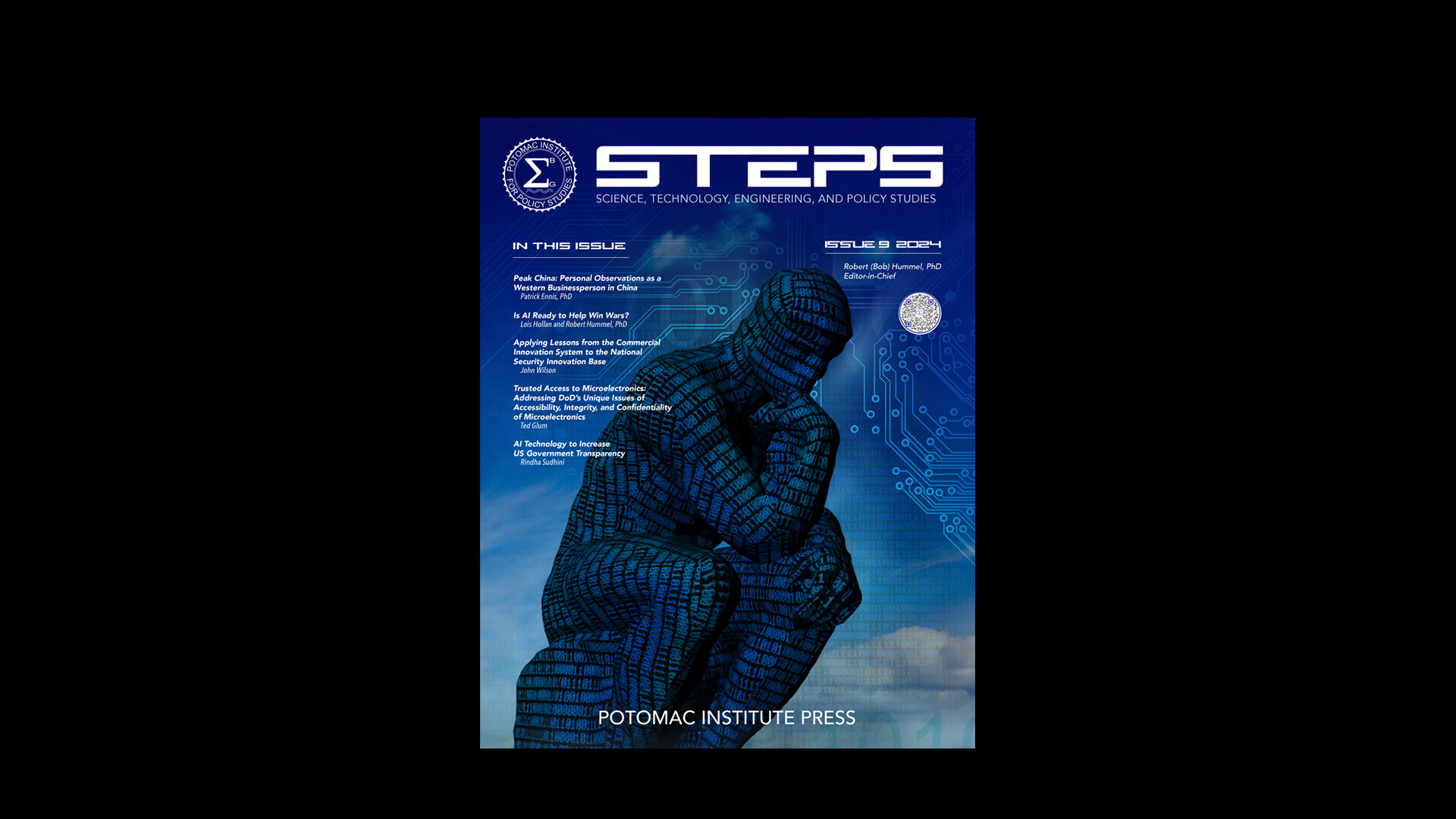Applying Scientific Understanding to Global and Political Environments May Improve Strategic And Policy Decisions
Just as U.S. naval forces could not effectively operate without understanding the marine environment, detection of radical actors and regime disruptions is limited by understanding of the cultural and political environments where those threats develop, according to Dr. Erin Fitzgerald, a Potomac Institute on assignment with the Office of Naval Research, currently working with the Minerva Program at OSD.
Named “Minerva” by then-SECDEF Robert Gates in 2008, Minerva was created with the belief that deeper understanding of global populations and their variance will yield more effective strategic and operational policy decisions.
The Potomac Institute, like Minerva, aims to bring the best scientific understanding of DoD-relevant phenomena to light and then help translate it into effective national policy to secure the Nation, according to Fitzgerald. The four PIPS academic centers – looking at neuroscience, terrorism, cyber security, and future revolutionary breakthroughs – all share goals with the Minerva program.
Dr. Fitzgerald gave a concise overview of the DOD’s Minerva program, and its wide ranging grant making activities in the social sciences. Research supported by Minerva falls into three broad categories: Belief formation and movement for change, models for societal resilience and instability, and power and escalation. The program places a special emphasis on researching factors that cause violent political radicalization and on predicting the political stability of nations. With an average grant of $600,000, the program’s grantees currently work in 88 countries on programs ranging from three to five years.
Hand-in-hand with this grant making work, Minerva supports visiting faculty appointments at America’s military academies and war colleges—the Minerva chairs. The program’s goal is to bring civilian experts from the academic community to the military community to draw on their expertise and help to prepare the officer corps to be more effective in culturally complex global operations. Through these programs, Minerva hopes to build a more comprehensive and accessible body of policy-relevant social science research and build greater links between academia and the defense establishment.
Fitzgerald has been with the Minerva program in some leading capacity since January 2011, and she directs the program from OSD’s Basic Research office in ASD(R&E). The “Minerva Steering Committee” is led by DASD Strategy Dan Chiu (OSD-Policy) and Director for Basic Research Robin Staffin (ASD(R&E)).
Her technical background in electrical engineering, computer science, cognitive science, and computational linguistics, the broad and multidisciplinary nature of the large teams Minerva grants could support appealed to Fitzgerald, and OSD-Policy agreed to let her take the lead of the program.
“Minerva is a fascinating program and provides the unique opportunity to help shape scientific directions, execute the science, bring insights to policy makers, and all of the steps in between,” said Fitzgerald. “ I’m enjoying the experience!”
Some examples of Minerva projects:
- Evaluated the effect on future violence of civilian casualties by ISAF and insurgents.
- Insight: Developed a metric empirically characterizing tribal cohesiveness, which appears to be a predictor of the susceptibility of those tribes to Al Qaida influence in Africa. Research team help joint workshop with SOCOM, resulting in operational recommendations.
- Identified innovation drivers and key trends in the Chinese defense economy based on open source Chinese documents and interviews, helping to better understand the reform and the pace of modernization in China’s defense industry.
- Built and publicly released a database on African social conflict related to environmental drivers, economic downturns, food security, elections, ethnic tensions, and other issues below national armed conflict levels (e.g., strikes, labor unrest).
- Learned that small-scale reconstruction projects reduce violence; large-scale ones do not.
- Cited, with three other team findings, in Senate Foreign Relations committee report 112–21 on Evaluating U.S. Foreign Assistance to Afghanistan

















